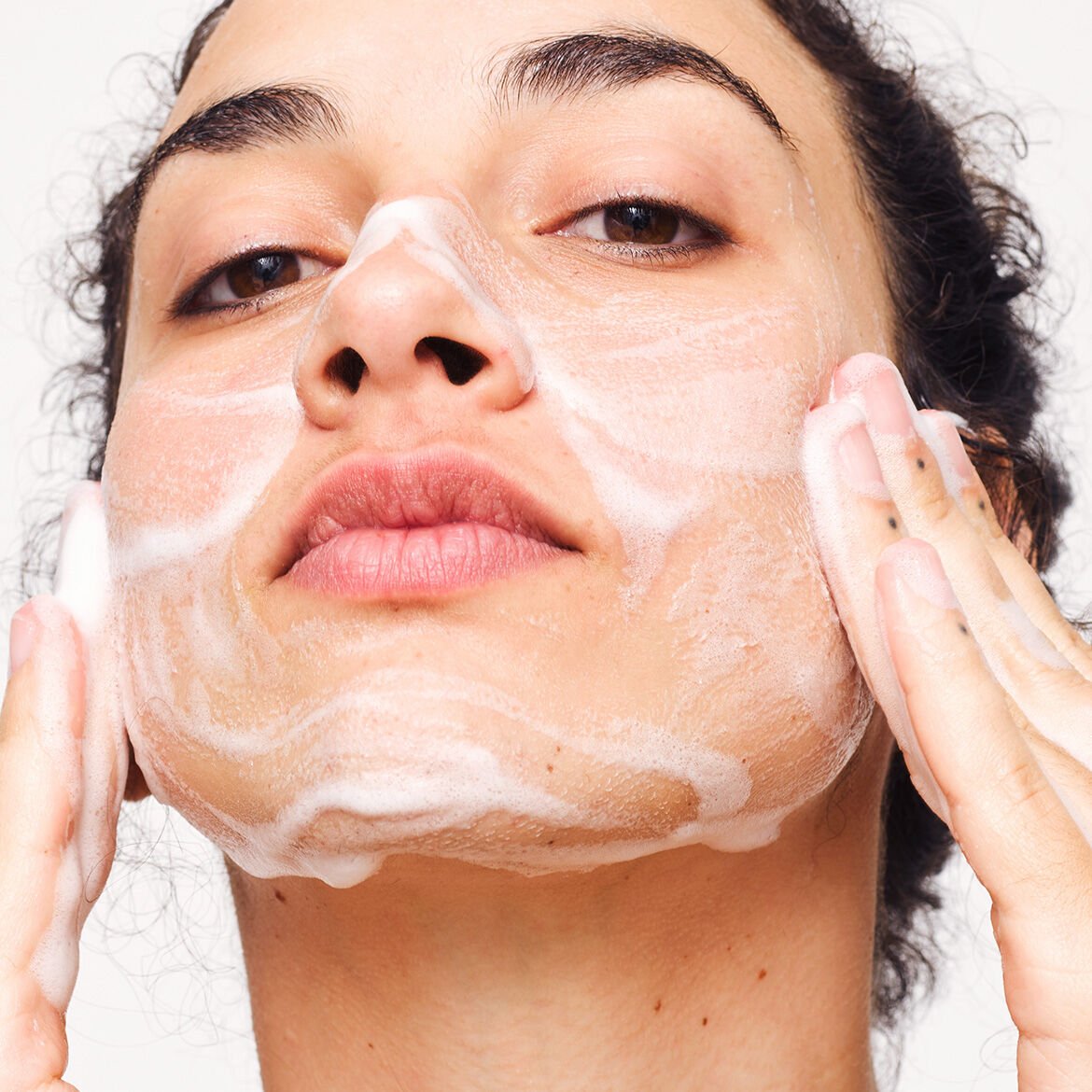Exfoliation
What Is Exfoliation?
Why Is Exfoliation Important to Your Skincare Routine?
How Do You Exfoliate Properly?
Dead skin cells build up on the surface of your skin and can be removed by exfoliation. Your skin can benefit from exfoliation in many ways. But where do you start? We take a look at what exfoliation is, why it’s important, and how to do it properly.

What is Exfoliation?
Exfoliation is the process where you remove the build-up of dead skin cells on the surface of your skin. There are two main ways in which you can do this: chemical and physical. Physical exfoliation is sometimes also called mechanical exfoliation.
Chemical Exfoliation
Chemical exfoliation works by breaking down your dead skin cells, which makes it easy for dead skin cells to be washed away. Chemical exfoliants are organic acids called alpha-hydroxy acids, beta-hydroxy acids, and poly-hydroxy acids (AHAs, BHAs, and PHAs.)
- AHAs include glycolic acid, lactic acid, malic acid, tartaric acid, and citric acids.
- BHAs include salicylic acid, beta-hydroxybutanoic acid, tropic acid, and trethocanic acids.
- PHAs include lactobionic acid and gluconolactone.
Physical Exfoliation
In physical exfoliation you use a skincare product that contains tiny, abrasive particles. You massage the product into your skin and the abrasive particles remove dead skin cells.
If you have sensitive skin you may want to use a product with micro-fine particles, instead of larger, more abrasive ones. Try Cetaphil Extra Gentle Daily Scrub, which contains micro-fine particles for exfoliation, as well as vitamins B5 and E to help soften and soothe your skin.
Physical exfoliation can also include the use of a device or tool. For example, the use of a mechanical facial brush or a micro-exfoliating roller.

Why is Exfoliation Important?
Removing the dead cells from the surface of your skin accelerates the natural turnover of your skin cells. This has many benefits including:
- Revealing smooth, bright, and soft new skin underneath
- Hydrating your skin
- Reducing the appearance of wrinkles and fine lines
Chemical exfoliants, such as salicylic acid, can also help to manage acne. Salicylic acid helps to unclog pores, which can help improve acne breakouts. For products that contain salicylic acid visit Cetaphil products for acne-prone skin.
By removing the dead cells from your skin’s surface, exfoliation can also help other skincare products to be absorbed more effectively.
How Do I Exfoliate Properly?
If not done properly, exfoliation can damage your skin and lead to increased redness, irritation and breakouts. It’s important to start slowly and be gentle.
If you’re already exfoliating and want to know if you’re overdoing it, check out Are You Over-Exfoliating?

Choosing the Right Exfoliant for Your Skin Type
It’s important to consider your skin type when choosing an exfoliation product and method. For example, if you have sensitive skin you may want to consider a gentle chemical exfoliant. Consider Cetaphil Healthy Radiance Gentle PHA Exfoliating Cleanser, which contains a gentle PHA alongside niacinamide and antioxidants to nourish your skin and reduce the appearance of dark spots.
Adding Exfoliation to Your Skincare Routine
How often you exfoliate will depend on your skin type and the product you choose. You could use a gentle exfoliation product every day. Stronger exfoliants or deep pore cleansers should be used less often.
Cetaphil Dermacontrol Purifying Clay Mask is a deep pore cleaner that contains Amazonian clay. It gently lifts away dead skin cells and helps to improve your skin's tone and texture. It can be used up to three times a week.
Read What’s the Best Order to Apply Your Skincare Routine for tips on when best to apply your exfoliation products.
It’s not just your face that can benefit from exfoliation - your body can too. Try Cetaphil Smoothing Relief Body Wash, which contains lactic acid and biodegradable micro exfoliants made from sunflower wax.
The Bottom Line
Regular exfoliation can help you achieve radiant looking skin and can improve the appearance of dark spots, wrinkles, and fine lines. It’s important to start slowly and gently and to make sure that you use the best product for your skin type. Finally, ensure you don’t overdo it as this can have a negative impact on your skin and increase irritation and redness.







